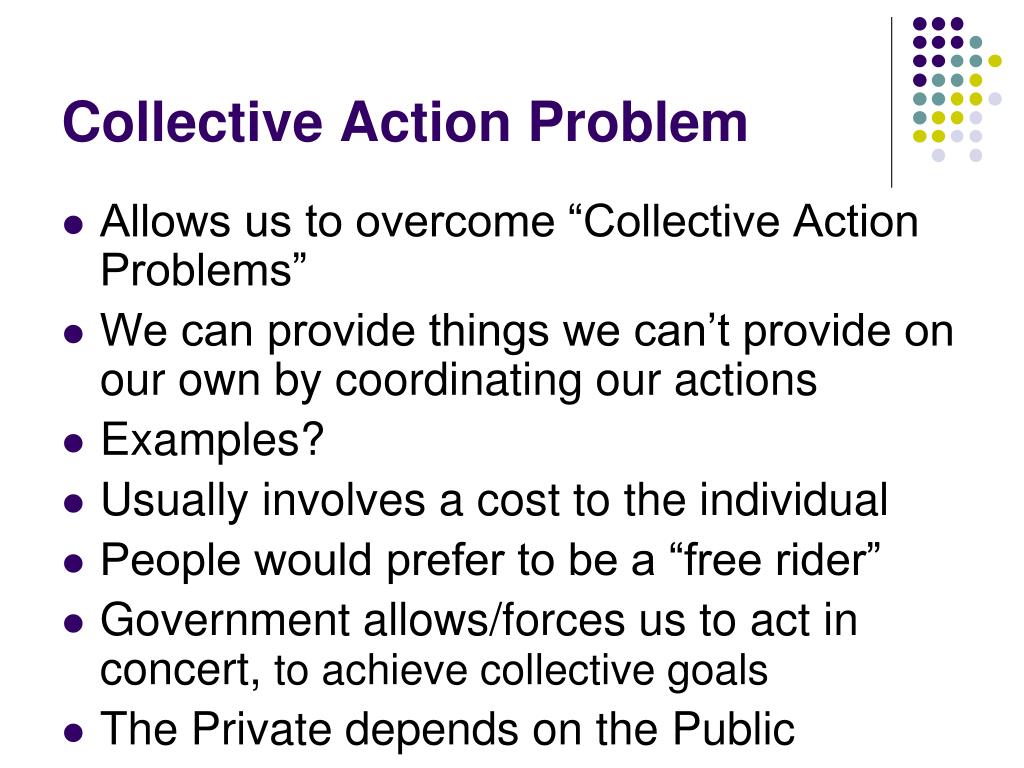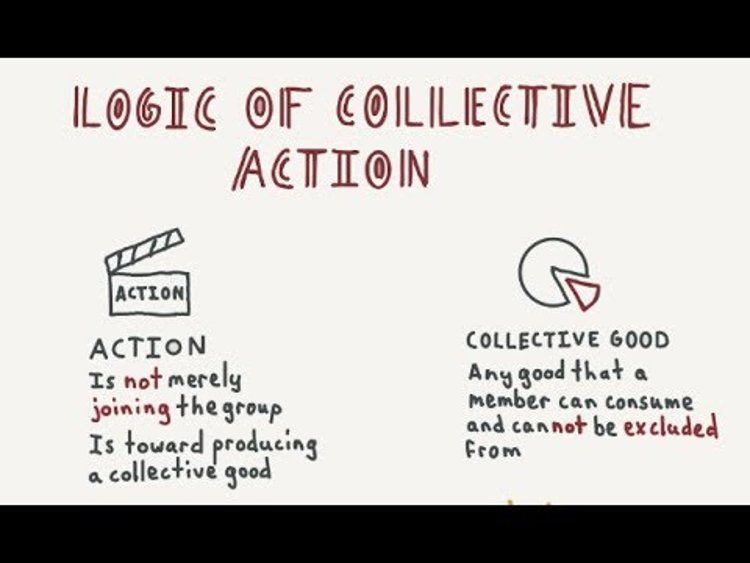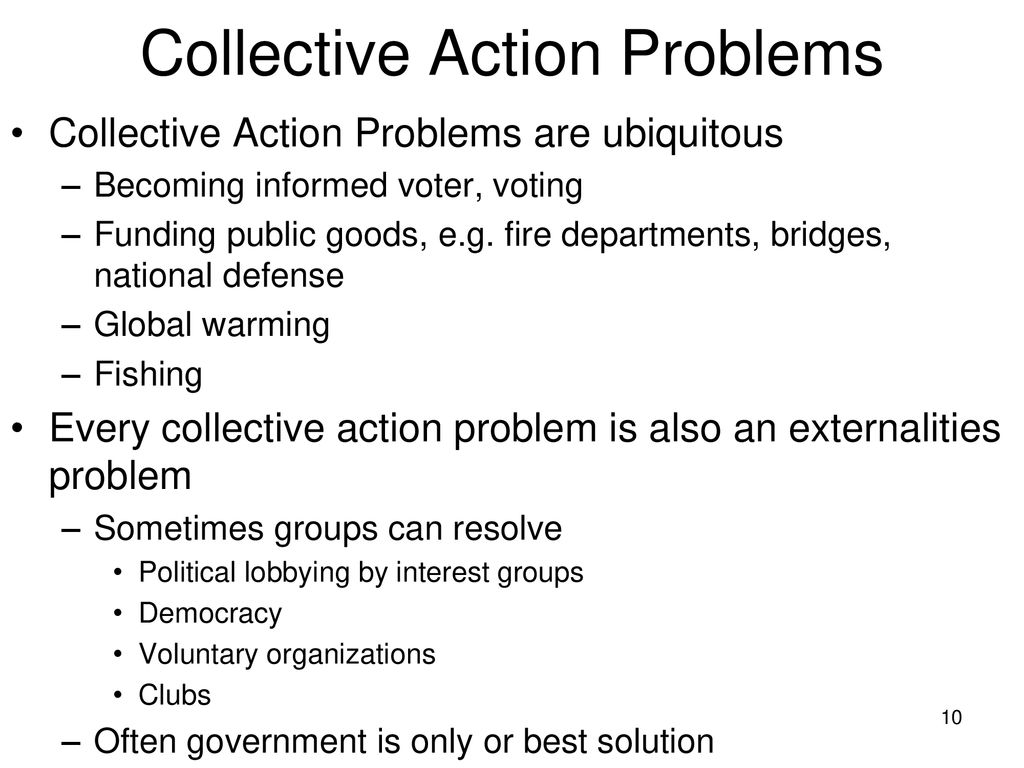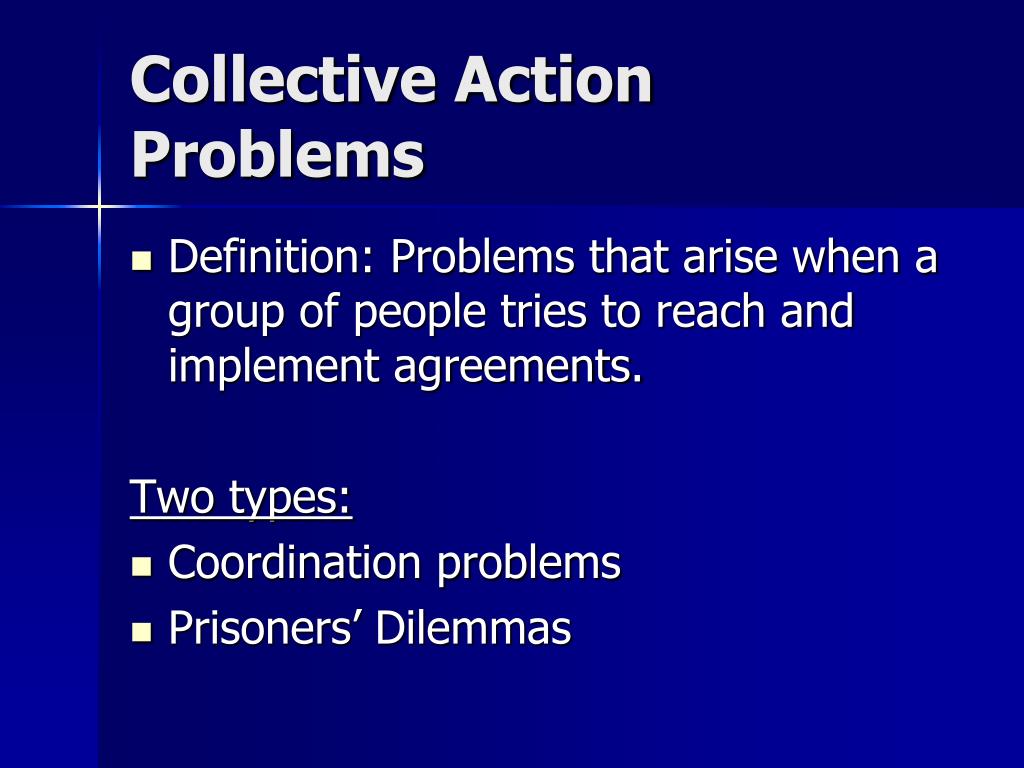What Are Some Ways To Overcome Collective Action Problems

Global challenges from climate change to public health crises demand unified action, yet individual self-interest often undermines collective efforts. Understanding and implementing strategies to overcome these collective action problems is crucial for a functioning society.
Collective action problems arise when individual rational behavior leads to suboptimal outcomes for the group as a whole. We examine practical solutions to align individual incentives with collective goals, ensuring cooperation and progress on shared challenges.
Understanding the Core Issues
A collective action problem surfaces when a number of people would all benefit from a specific action, but the cost associated prevents them from acting on it. This cost can be many things, from money to effort.
Ultimately, each individual rationally decides not to participate, believing their single contribution won't significantly impact the outcome, or that they can benefit from others' actions without contributing themselves – a free-rider problem.
The Tragedy of the Commons
Garrett Hardin's 1968 essay, "The Tragedy of the Commons," vividly illustrates this concept. It describes a shared pasture where each herdsman maximizes their individual gain by adding more cattle, ultimately leading to overgrazing and destruction of the pasture.
Each herdsman benefits directly from the additional cattle, while the cost of overgrazing is shared by all. This disparity of individual benefit and shared cost creates the tragedy.
Solutions: Aligning Incentives
Overcoming collective action problems requires careful design of institutions and mechanisms to align individual and collective interests. Several proven strategies exist.
1. Selective Incentives: The Carrot and the Stick
Offer private benefits (the carrot) to those who contribute to the collective effort, or impose costs (the stick) on those who do not. This directly alters the cost-benefit analysis for individuals.
For example, membership benefits in environmental organizations incentivize participation, while fines for littering discourage inaction on environmental cleanliness.
According to Elinor Ostrom's work, successful common-pool resource management often involves clearly defined rules and graduated sanctions for violations.
2. Privileged Groups: Small is Powerful
In smaller groups, the impact of each individual's contribution is more significant and readily apparent. This increases the likelihood of cooperation.
If the benefit from an action is concentrated among a few individuals, that group may be willing to bear the cost of providing that benefit for the whole.
For example, a small neighborhood association might be more successful in organizing a cleanup effort than a large city-wide initiative.
3. Leadership and Coordination: Guiding the Way
Effective leadership is crucial for overcoming collective action problems. Leaders can articulate shared goals, coordinate individual efforts, and enforce agreements.
Strong leadership can also foster a sense of community and shared identity, increasing the willingness to cooperate. A charismatic and trusted leader can foster cooperation even in large groups, a case in point being that of Nelson Mandela in spearheading the fight against apartheid.
4. Social Norms and Moral Suasion: The Power of Peer Pressure
Appealing to social norms, ethics, and a sense of shared responsibility can encourage cooperation. Highlighting the moral implications of inaction can motivate individuals to contribute.
Public awareness campaigns emphasizing the importance of recycling, voting, or conserving water are examples of moral suasion. Peer pressure also plays a significant role.
Recent research indicates that social messaging framed around the benefits of collective action, like improved air quality or reduced traffic congestion, can be effective.
5. Government Intervention: Regulation and Enforcement
In some cases, government intervention may be necessary to enforce cooperation and prevent free-riding. This can take the form of regulations, taxes, or subsidies.
For example, mandatory vaccination programs address the collective action problem of herd immunity. Carbon taxes aim to internalize the external costs of pollution and incentivize cleaner energy sources.
Regulations regarding environmental protection or workplace safety demonstrate that the power of policy can incentivize collective outcomes.
Recent Examples
The global response to the COVID-19 pandemic highlighted both the challenges and potential solutions to collective action problems. The development and distribution of vaccines required international cooperation and funding commitments from various countries. WHO played a critical role.
However, vaccine hesitancy and unequal access to vaccines demonstrated the persistent challenges of aligning individual choices with collective health goals. Social norms and effective communications were essential in fighting hesitancy.
Another example is the effort to combat climate change. The Paris Agreement, although non-binding, represents a global commitment to reduce greenhouse gas emissions. This involved negotiations and agreement upon goals from countries.
Looking Ahead
Overcoming collective action problems remains a critical challenge in an increasingly interconnected world. The success of efforts to address climate change, public health crises, and other shared challenges depends on our ability to design effective institutions and mechanisms that promote cooperation.
Further research is needed to better understand the behavioral factors that influence cooperation and to develop more effective strategies for aligning individual incentives with collective goals. Continued collaboration amongst policy makers, researchers, and community organizations is a fundamental step.
By understanding and applying the principles discussed, we can pave the way for a more sustainable and equitable future. More and more people will need to collaborate on solutions to collective action problems.


















